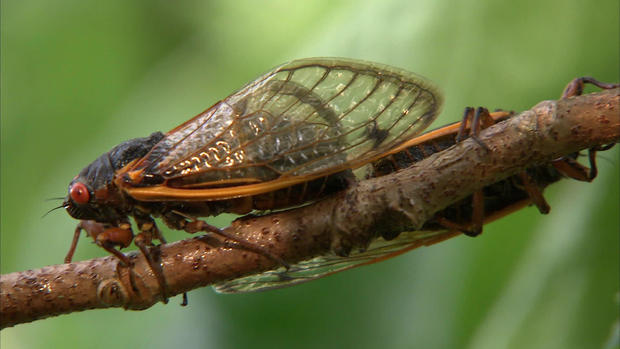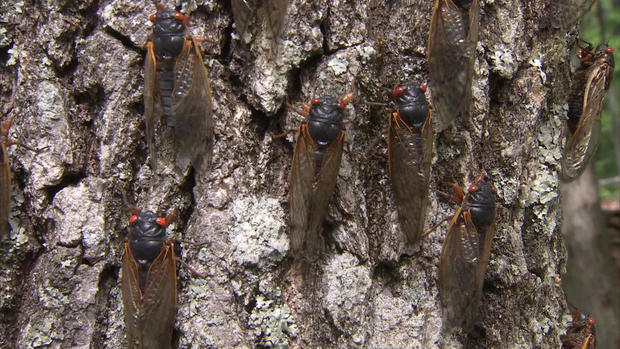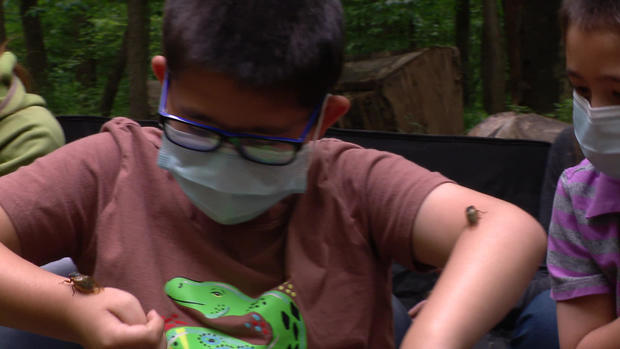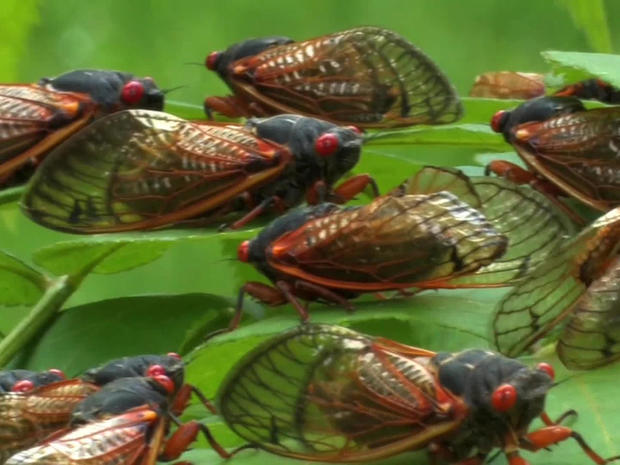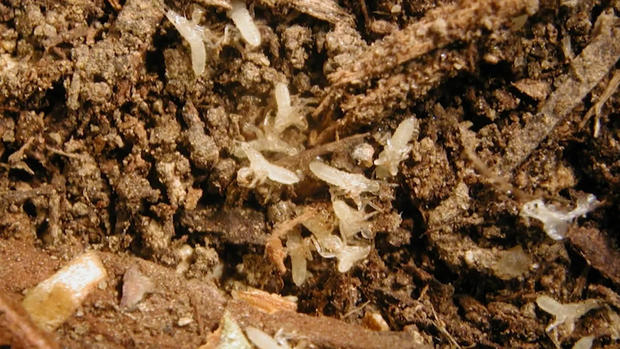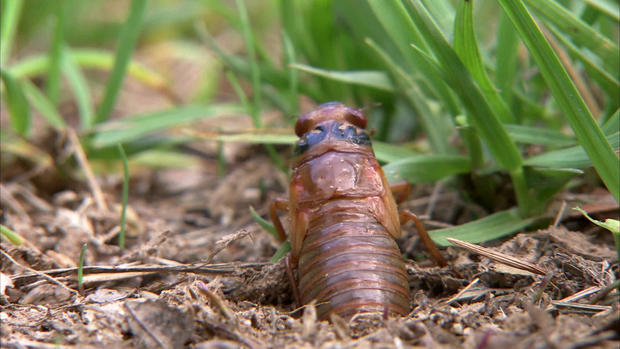The return of the cicadas
What is it about the cicada that bugs people? Like it or not, here they come!
"We are going to have the collision of something like maybe four billion, maybe 10 billion, maybe a trillion tiny insects with 30 million human beings," said Mike Raupp. "And this is the only place on Planet Earth, even in the universe, that this happens. So, that's what makes this thing so special."
Raupp has been waiting 17 years for the emergence of the Brood X cicadas in the Eastern U.S., from New York to Indiana to Georgia. He and his wife, Paula Shrewsbury, both Ph.D. entomologists at the University of Maryland, are pretty excited about this.
"These are one of the coolest insects out there," Shrewsbury told CBS News national correspondent Chip Reid.
And they are marking the occasion with cicada T-shirts, earrings ("You can never have too much cicada bling!"), even cicada cookies. (More about that later.)
The last time Brood X appeared was 17 years ago, when people were logging onto Facebook for the first time, the movie "The Lord of the Rings: The Return of the King" won 11 Oscars, and no one was keeping up with the Kardashians.
The cicadas have been underground, living on tree sap. And now, as the ground temperature hits 64 degrees, they're making their way to the treetops, to mate.
The cicada's mating song will loudly announce their arrival. "It's going to be anywhere between 80 and 100 decibels," said Raupp. "That's the sound of a lawnmower engine. That's the sound of jet airplanes going overhead." In fact, he told Reid, "they're going to be louder."
Last week, some lucky families got to visit with some of the first cicadas of 2021, in a program at Hidden Oaks Nature Center in Annandale, Virginia, led by naturalist Suzanne Holland. She explained how the cicadas shed their skin, and then start climbing the trees – or a conveniently located human.
Their goal is to reach the tree branches where they will mate, lay eggs, and then die.
Two weeks later, the eggs hatch, the young tumble to the ground ...
... and the whole 17-year cycle will start all over again.
"It's just one of the most spectacular phenomena in all of nature," said Raupp. "They're not going to bite. They're not going to sting. They're not going to carry away small children and dogs like the flying monkeys in 'The Wizard of Oz.' That's not going to happen, Chip!"
And they don't bug everyone; one young girl at Hidden Oaks said, "I think they're cute, they're adorable."
For the next few weeks it will be like an all-you-can-eat high-protein buffet, for everything from fish to turtles, from ants to opossums. Many dogs and cats will find them too tempting to resist, too, and yes, so will some humans.
Would they taste like cricket? Reid decided to check out the buzz. "Just like grade school, it's ten o'clock – time to have some milk and cookies," said Raupp.
The judgment? "Crunchy," said Reid. "Crunchy, sweet, delicious," pronounced Raupp.
For more info:
- Mike Raupp, University of Maryland
- Paula Shrewsbury, University of Maryland
- Hidden Oaks Nature Center, Annandale, Va.
- Brood X Periodical Cicadas FAQ (National Park Service)
- cicadamania.com
Story produced by Maggie Dore. Editor: George Pozderec.

